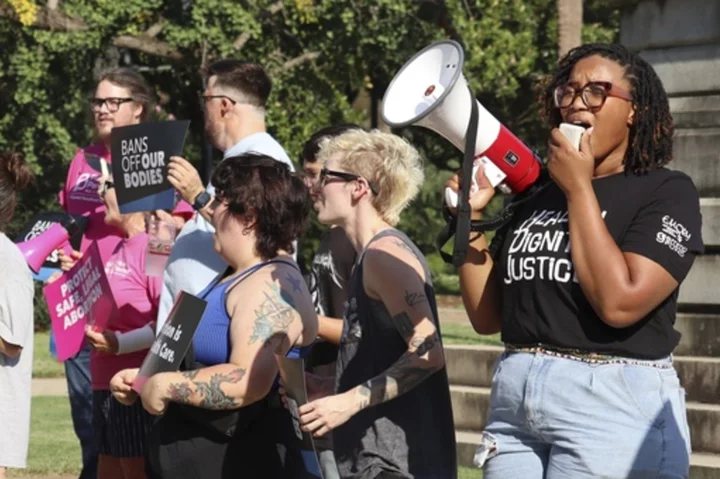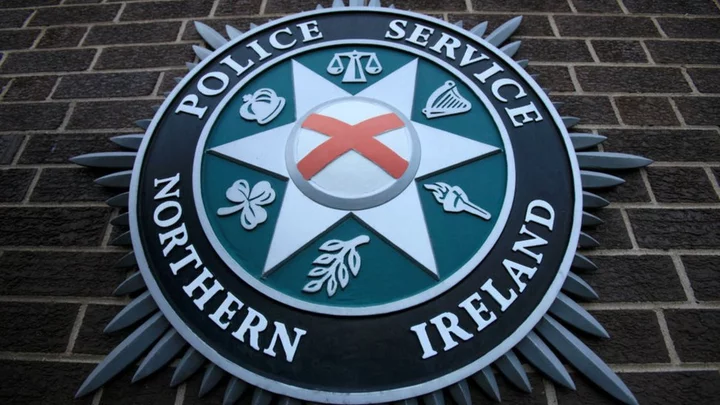COLUMBIA, S.C. (AP) — When the South Carolina Supreme Court upheld a ban on most abortions this week, the majority wrote that they were leaving “for another day” a decision on when, exactly, the “fetal heartbeat” limit begins during pregnancy. Doctors practicing under the strict law cannot similarly punt on that question.
Physicians say the statute's unclear guidance is already chilling medical practice at the few abortion clinics that operate in the conservative state. With potential criminal charges hanging in the balance, most abortions are being halted as doctors wrestle with the murky legal definitions.
“These medical definitions they tried to put forward are legislative and put forward by people who don’t practice medicine,” said Dr. Dawn Bingham, chair of the South Carolina section of the American College of Obstetricians and Gynecologists, or AGOC. “This language creates uncertainty among medical providers who may be unsure they’re legally allowed to terminate a pregnancy.”
South Carolina and Georgia are the only two states with such bans on the books. An Ohio court is weighing another one, and a six-week ban is pending in Florida.
In South Carolina, the measure passed by the Republican-dominated General Assembly bans abortion after what it calls a “fetal heartbeat” is identified. The law defines that term as “cardiac activity, or the steady and repetitive rhythmic contraction of the fetal heart, within the gestational sac.” Medical professionals can usually detect cardiac activity around six weeks of pregnancy, which is before most people know they are pregnant.
That language is clinically inaccurate according to medical consensus, which holds that such “cardiac activity” is not a heartbeat and an embryo has not yet become a fetus at that stage. A 2013 University of Leeds study determined that the four clearly defined chambers in the heart that appear from the eighth week of pregnancy remain “a disorganized jumble of tissue” until around the 20th week.
South Carolina's law requires that providers perform an ultrasound on any patient seeking an abortion, display the images and record a description of any present “fetal heartbeat.” But the justices left legally undecided the question of whether “cardiac activity” and the described “rhythmic contraction of the fetal heart” refer to the same point or two separate points in a pregnancy.
From a medical standpoint, the ACOG says that while electronic impulses signifying “cardiac activity” can be recognized early on, an actual heart is not detectable by ultrasound until roughly 17 to 20 weeks of gestational age.
Charleston-based OB-GYN Jessica Tarleton said the presence of the word “or” between the terms in the law's language creates two different definitions and is “vague.” It always takes lawyers some time to put together advice following any restrictions on abortion, she added.
“Defining a structure as a heart would put the definition later in pregnancy than earlier when you would see rhythmic contractions of some kind of cardiac structure," she said.
In his dissent, South Carolina Supreme Court Chief Justice Donald Beatty questioned how doctors and their lawyers could comply with the law without “a determination of this key point.”
State Senate Majority Leader Shane Massey, a Republican, dismissed the idea that the definitions lack precise guidelines for medical professionals. He said the state has long required that doctors perform ultrasounds to provide an opportunity for patients to see the images before having an abortion.
“Now it just says if there is cardiac activity that is present on that ultrasound — if you can hear the heart beating — then you can't perform that abortion,” Massey told reporters Wednesday.
On Thursday, abortion providers filed a petition for a rehearing based on what they called the ambiguity arising from the definition of “fetal heartbeat.” While some South Carolinians will remain eligible for abortions under the law, Planned Parenthood attorney Catherine Humphreville predicts widespread confusion resulting from the ruling.
In the meantime, doctors have been cancelling abortion appointments.
A handful of the 30 or so people scheduled for abortions Wednesday had been served at a Planned Parenthood location in Columbia when the ruling was delivered. The remaining appointments got put on hold, according to Dr. Katherine Farris, chief medical officer of Planned Parenthood South Atlantic.
The Center for Reproductive Rights reported similar postponements at another clinic upstate, and Farris heard the same from colleagues in hospitals.
Abortion providers who violate the law could face felony charges carrying up to two years in prison and the loss of professional licenses. That threat has them interpreting these types of laws very conservatively, according to Tarleton, meaning many abortions have stopped altogether.
“In the setting of very high penalties,” Farris said, “the only option for providers is to pause as we try to figure this out.”
___
Associated Press writer Jeffrey Collins contributed to this report. Pollard is a corps member for the Associated Press/Report for America Statehouse News Initiative. Report for America is a nonprofit national service program that places journalists in local newsrooms to report on undercovered issues.









